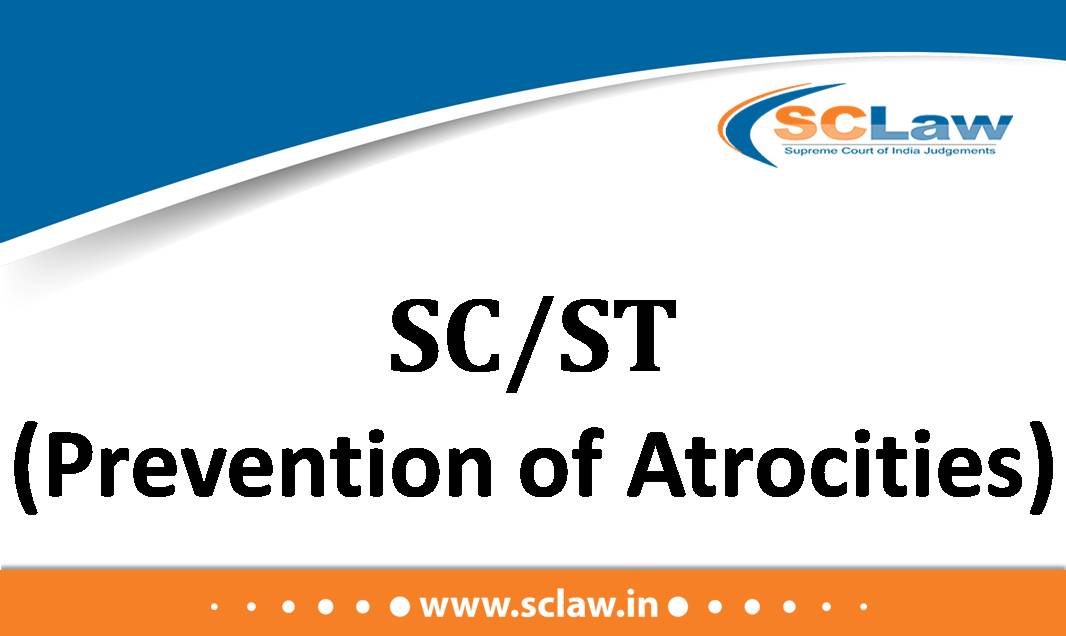Writ by victims of fire tragedy – claimed the lives of 65 persons and left 161 or more with burn injuries. -Held that where the plaintiff can prove the accident but cannot prove how it happened to establish negligence on the part of the defendant, such hardship is sought to be avoided by applying the principle of res ipsa loquitor.
SUPREME COURT OF INDIA DIVISION BENCH SANJAY GUPTA AND OTHERS — Appellant Vs. STATE OF UTTAR PRADESH THROUGH ITS CHIEF SECRETARY AND OTHERS — Respondent ( Before : Hemant Gupta…
Rajasthan Rent Control Act, 2001- Transfer of Property Act, 1882 – Section 106 A decree passed by the civil court is valid and executable which is not interdicted by the applicability of the Act to the area in question. The Act is applicable to the area in question from the date the notification came into force and it does not bar the decree of the civil court or the pendency of such civil suit.
SUPREME COURT OF INDIA DIVISION BENCH SHANKARLAL NADANI — Appellant Vs. SOHANLAL JAIN — Respondent ( Before : Hemant Gupta and V. Ramasubramanian, JJ. ) Civil Appeal No. 2816 of…
No person is entitled to establish a medical college except with the previous permission of the Central Government – Similarly, no medical college can open a new or higher course of study or training, including a postgraduate course of study or training without the previous sanction of the Central Government – Likewise, no medical college can increase its admission capacity in any course of study or training, including a postgraduate course of study or training.
SUPREME COURT OF INDIA DIVISION BENCH CENTRAL COUNCIL FOR INDIAN MEDICINE — Appellant Vs. KARNATAKA AYURVEDA MEDICAL COLLEGE AND OTHERS — Respondent ( Before : L. Nageswara Rao and B.R.…
Banking – Release of mutual funds – Securities need to be released in favour of the applicant – HELD the applicant shall now furnish bank guarantee for a sum of Rs.100 Crores and it shall further furnish a corporate guarantee to the extent of Rs.300 Crores. The bank guarantee earlier furnished by the applicant to the extent of Rs.344.07 Crores shall stand discharged on the applicant fulfilling the above condition to the satisfaction of the Trial Court concerned.
SUPREME COURT OF INDIA DIVISION BENCH SECURITIES AND EXCHANGE BOARD OF INDIA — Appellant Vs. IL AND FS SECURITIES SERVICES LTD. AND OTHERS — Respondent IN THE MATTER OF: DALMIA…
Sections 10, 13, 15, 16, 17, 18, 18A, 18B, 19, 20, 23 and 38 of the Unlawful Activities (Prevention) Act, 1967 – HELD the evidence which has already unfolded and above all, the long period of incarceration that the appellant has already undergone, time has arrived when the appellant be enlarged on bail.
SUPREME COURT OF INDIA DIVISION BENCH JAHIR HAK — Appellant Vs. THE STATE OF RAJASTHAN — Respondent ( Before : K.M. Joseph and Hrishikesh Roy, JJ. ) Criminal Appeal No.…
Penal Code, 1860 (IPC) – Section 504 – Scheduled Castes and the Scheduled Tribes (Prevention of Atrocities) Act, 1989 – Section 3(i)(x) – Probation of Offenders Act, 1958 – Sections 3 and 11 – Power of court to release certain offenders after admonition – HELD this Court under the 1958 Act itself can pass an order at this stage – It appropriate that the appellant may be released instead of carrying out the sentence after due admonition
SUPREME COURT OF INDIA DIVISION BENCH KUNTI KUMARI — Appellant Vs. THE STATE OF JHARKHAND — Respondent ( Before : S. Abdul Nazeer and Vikram Nath, JJ. ) Criminal Appeal…
Penal Code, 1860 (IPC) – Section 307 – Attempt to murder – Merely because a long period has lapsed by the time the appeal is decided cannot be a ground to award the punishment which is disproportionate and inadequate – High Court order set aside
SUPREME COURT OF INDIA DIVISION BENCH STATE OF RAJASTHAN — Appellant Vs. BANWARI LAL AND ANOTHER — Respondent ( Before : M.R. Shah and B.V. Nagarathna, JJ. ) Criminal Appeal…
Practices and Rules – Dismissal of appeal without reasoning – Impugned order passed by the High Court is a non-speaking and nonreasoned order and even the submissions on behalf of the revenue are not recorded, the impugned order passed by the High Court dismissing the appeal is unsustainable – Matter is remanded to the High Court
SUPREME COURT OF INDIA DIVISION BENCH THE PRINCIPAL COMMISSIONER OF INCOME TAX-1 — Appellant Vs. M/S. BAJAJ HERBALS PRIVATE LIMITED — Respondent ( Before : M.R. Shah and B.V. Nagarathna,…
Uttar Pradesh State Universities Act, 1973 – Sections 16 and 17 – State Government is not bound by any direction issued by the Central Government which would at worst be mandatory to the Central Universities and the Central Government Colleges receiving funds – Thus, any such decision would obviously be directory to State Government Colleges and Universities, being in the nature of a mere recommendation
SUPREME COURT OF INDIA DIVISION BENCH STATE OF UTTARAKHAND — Appellant Vs. SUDHIR BUDAKOTI AND OTHERS — Respondent ( Before : Sanjay Kishan Kaul and M.M. Sundresh, JJ. ) Civil…
Delhi Rent Control Act, 1958 – Section 25B(8) – HELD the mere existence of the other properties which are, in fact, denied by the appellant would not enure to the benefit of the respondent in the absence of any pleadings and supporting material before the learned Rent Controller to the effect that they are reasonably suitable for accommodation. embargo under the Enemy Property Act would not be made applicable to the properties in question.
SUPREME COURT OF INDIA DIVISION BENCH ABID-UL-ISLAM — Appellant Vs. INDER SAIN DUA — Respondent ( Before : Sanjay Kishan Kaul and M.M. Sundresh, JJ. ) Civil Appeal No. 9444…












